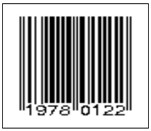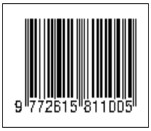KOMPETENSI GURU MATEMATIKA PEMULA DALAM MEMBUAT PERANGKAT PEMBELAJARAN SMP/MTs DI LOMBOK TIMUR
Abstract
Teachers must be able to make and develop learning plans, create student activity sheets according to learning needs, and valid learning outcomes test. This study aims to describe the competence of beginner math teachers in making learning tools for SMP / MTs in East Lombok. This research is a survey research with descriptive statistical design that uses concurrent embedded strategy of mixed method approach. The number of samples in this study is 246 mathematics teachers who teach in SMP / MTs in East Lombok region, which are determined using purposive sampling technique. The research data is collected using instruments in the form of checklists and questionnaires. Data analysis uses quantitative descriptive statistical analysis with competency tendencies in five categories: very competent, competent, quite competent, less competent, and incompetent.
The results obtained are 1) the beginner's mathematics teacher competence in making lesson plans is categorized as competent with a percentage of 60.98%, an average value of 81.287 and a standard deviation of 7.983. 2) Competence of beginner mathematics teachers in making LKS included in the category of quite competent with a percentage of 54.07%, an average value of 76.659 and a standard deviation of 7.739. 3) Competence of beginner math teachers in making THB included in the competent category with a percentage of 74.39%, an average value of 81.664 and a standard deviation of 7.135.
Keywords
Full Text:
PDFReferences
Abdul Majid. (2009). Perencanaan Pembelajaran Mengembangkan Standar Kompetensi Guru. Remaja Rosdakarya: Bandung.
Aminullah. (2016). Kesiapan Mahasiswa Pendidikan Matematika Se-Kota Mataram dalam Praktik Pengalaman Lapangan (PPL) di Sekolah. Tesis. Yogyakarta: Universitas Negeri Yogyakarta.
Arends, R. I. & Kilcher, A. (2010). Teaching for Student Learning: Becoming an accomplished teacher. New York: Routledge.
Arends, R. I. (2007). Learning to Teach (7th ed). New York: McGraw-Hill.
Brown, D.H. (2007). Prinsip Pembelajaran dan Pengajaran Bahasa. Jakarta: Kedutaan Besar USA di Indonesia.
Darmodjo, H. & Kaligis, J. R. E. (1992). Pendidikan IPA II. Jakarta: Depdikbud.
Depdiknas. (2008). Pendekatan, Jenis, dan Metode Penelitian Pendidikan. Jakarta: Direktorat Tenaga Kependidikan
Ebel, R.L & Frisbie, D.A. (1986). Essential of Educations Measurement. (4th ed). New Jersey: Prentice-Hall inc.
McArdle. (2010). Instructional design for action learning. New York, NY: Amacom.
Mendikbud. (2013). Peraturan Menteri Pendidikan dan Kebudayaan Nomor 65 Tahun 2013, tentang Standar Proses. Jakarta
Mendikbud. (2013). Peraturan Menteri Pendidikan dan Kebudayaan Nomor 66 Tahun 2013, tentang Standar Penilaian. Jakarta
Mendikbud. (2014). Peraturan Menteri Pendidikan dan Kebudayaan RI, Nomor 103, tahun 2014, tentang, Pembelajaran pada Pendidikan Dasar dan Pendidikan Menengah. Jakarta
Mendiknas. (2007). Peraturan Menteri Pendidikan Nasional, Nomor 41, Tahun 2007 tentang Standar Proses untuk Satuan Pendidikan Dasar dan Menengah. Jakarta
Miller, Miller, Linn & Grondlund. (2009). Measurement and Assessment in Teaching.Upper Saddle River, NJ: Pearson Education, Inc.
Mulyasa, E. (2013). Standar Kompetensi dan Sertifikasi Guru. Bandung: Remaja Rosdakarya.
Nitko, A. J. & Brookhart, S. M. (2011). Educational Assessment of Students (6th ed.). Boston : Pearson Educational, Inc.
Ormrod, Jeanne E. (2003). Psikologi Pendidikan: Membantu siswa tumbuh dan berkembang. Jakarta: Erlangga.
Presiden. (2005). Peraturan Pemerintah RI Nomor 19, Tahun 2005, tentang Standar Nasional Pendidikan. Jakarta.
Republik Indonesia. (2003). Undang-Undang RI Nomor 20, Tahun 2003, tentang Sistem Pendidikan Nasional. Jakarta
Republik Indonesia. (2005). Undang-Undang RI Nomor 14, Tahun 2005, tentang Guru dan Dosen. Jakarta.
Reynolds, C. R., Livingston, R. B., & Willson, V. (2009). Measurement and assessment in education (2nd ed.). New Jersey, NJ: Pearson Education.
Rimang, S. S. (2011). Meraih Predikat Guru dan Dosen Paripurna. Bandung: Alfabeta
Saif, N., Khan., Rehman., et al. (2013). Competency based job analysis. International journal of academic research in accounting, finance and management sciences. ISSN: 2225-8329, Vol. 3, No.1, pp. 105–111. Diunduh tanggal 15-10-2015, jam 13: 19.
Suryosubroto, B. (2002). Proses Belajar Mengajar di Sekolah: Wawasan baru, beberapa metode pendukung, dan beberapa komponen layanan khusus. Jakarta: Rineka Cipta
Trianto. (2007). Model Pembelajaran Terpadu dalam Teori dan Praktik. Jakarta: Prestasi Pustaka Publisher.
Trianto. (2012). Mendesain Model Pembelajaran Inovatif-Progretif: Konsep, landasan, dan implementasi pada kurikulum tingkat satuan pendidikan (KTSP). Jakarta: Kencana.
Widoyoko, S. E. P. (2014). Evaluasi Program Pembelajaran: Panduan praktis bagi pendidik dan calon pendidik. Yogyakarta: Pustaka Pelajar.
Yuvaraj, R. (2011). Competency Mapping. International journal of scientific & engineering research, Volume 2, Issue 8, ISSN 2229-5518, 1-7. Diunduh tanggal 15-10-2015.
DOI: https://doi.org/10.35327/gara.v12i2.48
Refbacks
- There are currently no refbacks.
Copyright (c) 2018 GANEC SWARA

This work is licensed under a Creative Commons Attribution-ShareAlike 4.0 International License.










